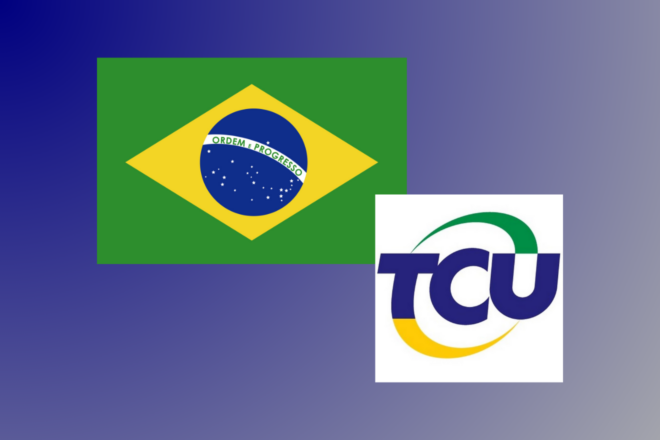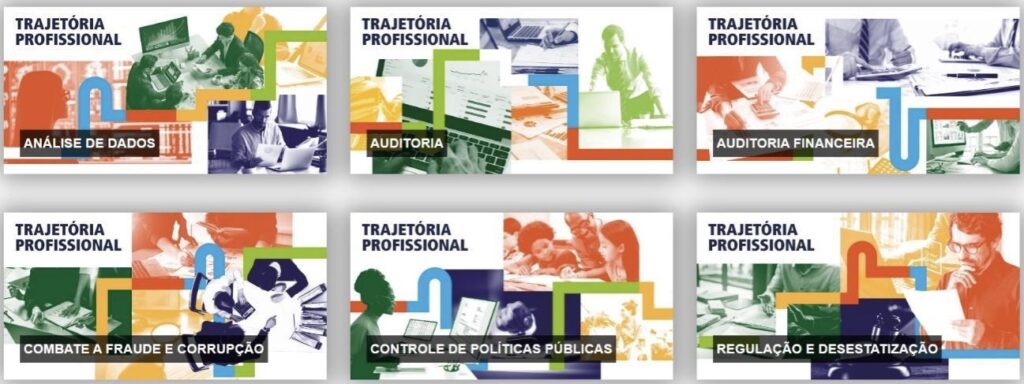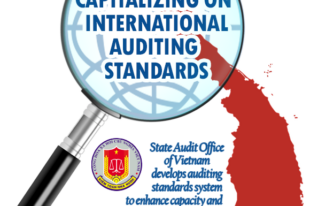The Professional Trajectory of the Judicial Function: A Case Study from the Federal Court of Accounts of Brazil

Author: Tânia Lopes Pimenta Chioato, Head of the Department of External Control for Jurisdictional Function
Since 2020, the Federal Court of Accounts of Brazil (TCU) has been structuring a policy of professional trajectories, with the aim of greater professionalization of its auditors. A professional trajectory is defined as the sequence of positions or roles occupied throughout the functional life of an auditor, encompassing qualifications, experiences, and competencies necessary to perform functions at a certain career level.
Professional trajectories at TCU cover areas such as data analysis, performance and compliance auditing, financial auditing, combating fraud and corruption, public policy control, and regulation and privatization. Each trajectory details, according to its complexity, the knowledge, skills, and critical experiences for the development and growth of professionals.

There is an unfolding of each trajectory into competencies and behaviors, each of these associated with training to support the auditor’s development, such as in-person courses, distance learning, texts, multimedia resources, and websites. Technical documents, manuals, and national and international standards on the subject are also available. To facilitate the application of acquired knowledge, there is a set of audits considered as reference by the Court.
In addition to technical competencies, there is a need for the development of personal competencies, such as professional integrity and ethics in the face of adversities, and leadership and management, in order to fulfill the trajectory.
The development of all these competencies at the professional levels required by the trajectory can grant the auditor, who wishes to join a particular trajectory, the title of a professional or specialist in the field. As an example, the professional level (intermediate) in Regulation and Privatization is granted to those who meet, at least, one of the following knowledge requirements:
- 100 hours required in regulation and privatization training as student or teacher, over the past ten years. The training should focus on a minimum of three of the following themes: Regulatory law, Enterprise Financial, Accounting, Regulatory Economy, Infrastructure Economy, Public policy for infrastructure, Financial Mathematics, Regulatory Governance, Project Management and Valuation (companies’ assets);
- 30 hours required in regulation and privatization training as student or teacher, over the past ten years. The training must focus on a specific infrastructure sector; or
- 20 hours required in Regulatory Control Practice, as student or teacher, over the past ten years.
As the list shows, taking specific courses and trainings in the trajectory area can help reduce the required hours. Furthermore, completion of postgraduate studies in Regulatory Control offered by TCU’ corporate education center, the Serzedello Correa Institute, within the past decade can substitute 150 hours of training. Should completion of said studies exceed a decade, only 75 hours may be substituted. Similarly, completion of any other postgraduate studies in regulation or privatization within the past ten years can substitute for 80 hours, provided they are complemented by 20 hours of specific training in Regulatory Control Practice. Should completion of non-specific postgraduate studies exceed ten years, only 40 hours may be substituted.
The knowledge requirements are not enough to grant the specialist title to the auditor. To achieve the professional level (intermediate) in Regulation and Privatization it is also necessary work experience in the area, measured by one of the following criteria:
- Participation in three activities (audit, report or working group) involving the trajectory skills, over the past four years; or
- Auditing projects completed totaling 150 hours and involving trajectory skills. Of these hours, a minimum of 50 must have been spent in a coordination position.
The complete list is available on the Trajectories Portal, restricted to internal access only.
The latest professional trajectory being developed at TCU relates to the jurisdictional function. Recognizing the importance of providing leaders with skills, knowledge, and experiences related to this function, TCU, through its corporate education center, structured the professional trajectory of the jurisdictional function around the fundamental principles that govern higher control institutions with this nature of operation.
Competencies and behaviors linked to INTOSAI P-50, an international standard that establishes the principles of jurisdictional activities of Supreme Audit Institutions (SAIs), have been suggested, as outlined below:
| INTOSAI P-50 | Competency | Behavior | Description |
| Principle 1: Legislation must establish the regime of responsibility and sanctions applicable to individuals subject to the law before the Federal Court of Accounts. | 1. Understand the jurisdictional activity of the TCU and Supreme Audit Institutions, the international and national governing norms, and the procedural process and corporate management systems of the Court. | Acts in accordance with the Principles of Jurisdictional Activities of the Courts of Auditors. | The auditor must be familiar with and able to apply the principles of jurisdictional activities of the courts of auditors in their activities, as recommended by international standards, such as INTOSAI-P 50 – Principles of jurisdictional activities of SAI, corresponding to the Brazilian Public Sector Auditing Standard (NBASP)-50. The auditor knows the jurisdictional activity carried out in other Supreme Audit Institutions (SAIs) around the world and recognizes similarities, differences, risks, and opportunities in applying international initiatives to enhance their jurisdictional activity. |
| ∙ principle of the legality of infractions, penalties and enforcement; | |||
| ∙ Principle of the legality of the jurisdiction of the Federal Court of Accounts in the identification and qualification of offenses, as well as in the issuance of convictions. | |||
| Knows the functions and internal and external actors involved in the execution of jurisdictional activities. | The employee is familiar with and applies, in addition to fundamental norms such as the Internal Regulations and the Organic Law of the TCU, specific norms related to the process, including ordinances, resolutions, normative instructions, and internal guidelines focused on the treatment of representations, complaints, special accounts, appeals, communications, filing, delegation of authority, information security, among others essential for the proper exercise of jurisdictional activity. | ||
| Applies the regulations governing procedural matters within the scope of the TCU appropriately. | The employee is familiar with and applies, in addition to fundamental norms such as the Internal Regulations and the Organic Law of the TCU, specific norms related to the process, including ordinances, resolutions, normative instructions, and internal guidelines focused on the treatment of representations, complaints, special accounts, appeals, communications, filing, delegation of authority, information security, among others essential for the proper exercise of jurisdictional activity. | ||
| Knows and operates, appropriately, the corporate systems related to document and process management. | The employee knows, identifies and operates the relevant corporate systems for the proper conduct of document management activities and external control processes, as well as for the production of management information for this activity. |
Each of the 12 principles of the standard will inspire the creation of competencies and behaviors to be internally developed, aiming to implement a culture of recognition, appreciation, and compliance with best practices in the performance of the jurisdictional function. Despite the optional nature of adhering to the trajectories, staff have incentives related to certification and professional recognition. Additionally, it is expected that training strategies, such as continuing education and postgraduate programs offered by TCU’s corporate school, will be aligned with approved trajectories to contribute to their implementation.
The professional trajectories policy aims to provide assertive development, optimize team formation, identify successors for critical positions, clarify requirements for professional progression, enable employees to manage their own trajectories, and promote transparency in the criteria for professional success at TCU.
The trajectory of the jurisdictional function adds to this policy, strengthening the institution and valuing this characteristic shared with many other Supreme Audit Institutions around the world.





